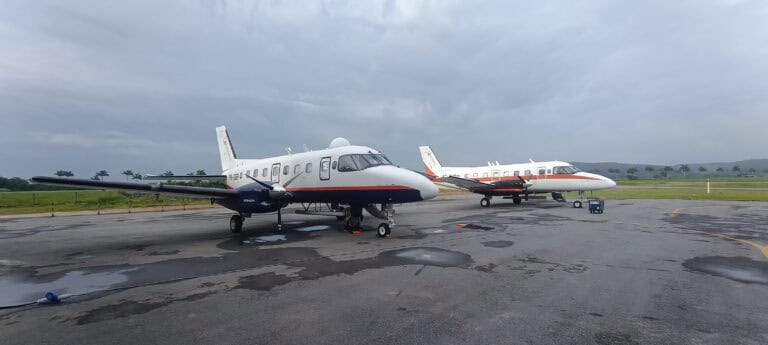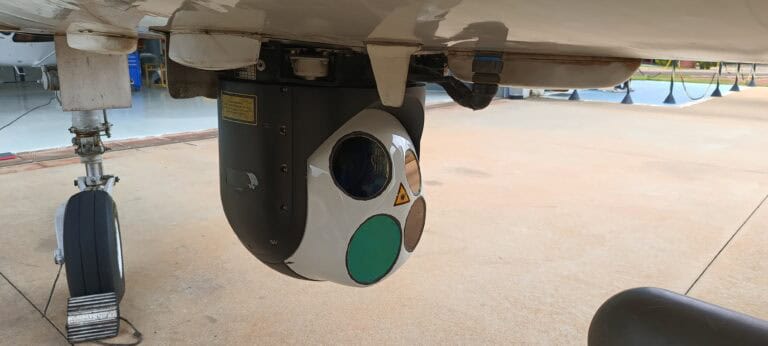Detecting Plastic from the Air
Airplanes are set to help identify plastic hotspots. The first test flights are taking off in Bragança Paulista, Brazil.
Aircraft deployment for monitoring large areas
Brazil impresses with its stunning landscapes, dense rainforests, and long coastlines. To detect plastic hotspots along these vast coastal areas, simple drones are not sufficient. This led to the idea of using airplanes for data collection. The reasoning: aircraft already operating in the region for monitoring oil platforms and ships could also be used to detect plastic pollution.
In December 2024, a team from Jade University of Applied Sciences will travel to Brazil to put this idea into action and test the technology on site. The team’s base will be located in Bragança Paulista, about 100 km north of São Paulo – home to the already equipped aircraft of project partner Optimare, which will be used for the test flights.

Successful test flights
From Bragança Paulista, the team launched their test flights – organizing two blocks, each consisting of three flights. The goal: to detect and document plastic hotspots. For this purpose, scanners and cameras were mounted underneath the aircraft. At the front of the plane, a downward-facing scanner was installed to identify plastic hotspots, while at the rear, an overview camera capable of rotating freely in all directions was mounted to visually capture these areas.
The images collected allow precise verification of whether plastic is actually present in the scanned areas. Since the aircraft flies over the regions at high speed, the flawless operation of the scanners and cameras is essential.
Thanks to the strong support of the local team, the test flights were successfully completed – demonstrating the effectiveness of the system. During the second round of test flights, the system worked perfectly, marking a tremendous success for the entire team.

Airplanes as an option for plastic detection
The results of the test flights show that detecting plastic from the air over large areas is feasible. In particular, mounting the technology on airplanes can be used to cover vast regions and collect valuable data.
This offers enormous potential: airplanes already in operation can be utilized for this purpose. Such aircraft are also active in Germany – with the appropriate technical upgrades, large areas could be monitored and valuable data gathered.
Through the research project Plastic Obs+, conducted in collaboration with the German Research Center for Artificial Intelligence, Optimare Systems GmbH, and Jade University of Applied Sciences, everwave has already been able to deploy the developed AI system locally on drones to detect plastic accumulations.


